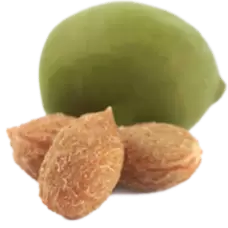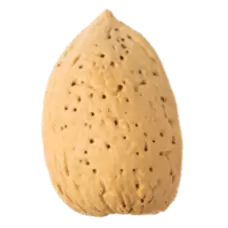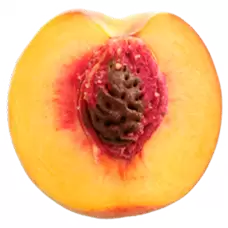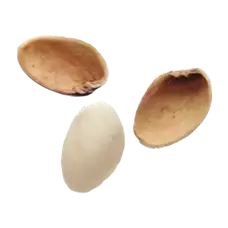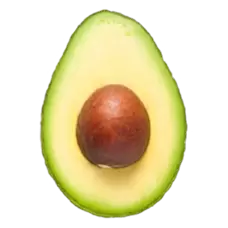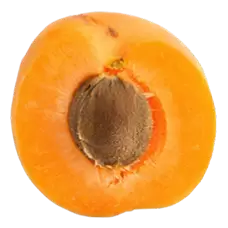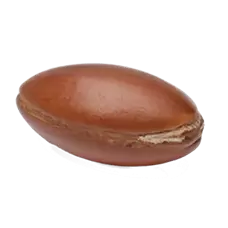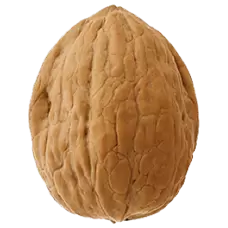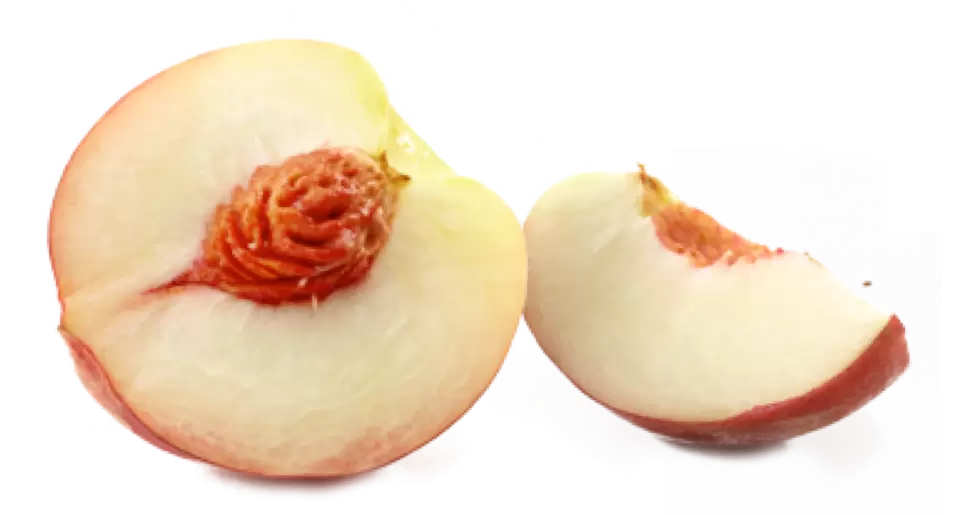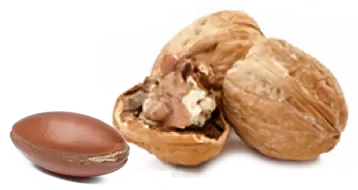Bio-Based Insulation Materials for Construction and Architecture
BioPowder.com manufactures a wide range of natural bio-based insulation materials. We provide numerous biological fibre products to enhance the insulation properties of building materials such as mortar, plaster and composite coatings. In addition, our product portfolio includes insulating infill granules for brick or wall systems.
Fully Bio-Based Insulation Granules and Fibres
Insulation materials come in diverse shapes and textures. Traditionally, synthetic products such as fiberglass or mineral wool have been used in construction. Also polyurethane foam (PU foam) or polystyrene foam (Styrofoam) are popular lightweight insulators. In recent years, concerns about eco-friendliness and recyclability have led manufacturers of insulation materials to look for greener alternatives. This is where BioPowder.com offers effective and innovative solutions with bio insulation: our natural fiber and powder products – made entirely from fruit stones and shells – can
- Fully replace synthetic insulants: in systems where glass powder or synthetic fibres are used, BioPowder.com olive stone or almond shell insulators are a natural and bio-based insulation solution with enhanced properties.
- Act as reinforcing fibres in PU foams: when polyurethane or polystyrene are filled with up to 40% BioPowder.com functional powders, the result is a reinforced compound. Apart from increased durability/stability, a major advantage of such composites is their reduced carbon footprint due to a significant bio-based portion of components.
- Reinforce, stabilize and texturize plaster systems: different grain sizes and shapes can boost the strength of plaster or mortar mixes. The excellent heat-retention properties of BioPowder.com bio-based insulations can transform traditional plaster layers into high performance insulators. Studies have also proven the effectiveness of olive stone fillers to improve heat retention properties of cement lime mortar.
- Add insulating properties to PVC and other floorings: any coating filled with strong thermal insulators can boost the energy efficiency of the insulation in buildings. Our BioPowder.com Olea FP additives were designed for bio-based coatings, claddings, board and panel systems for in- and outdoor applications.
Olive Stone Insulators: Enhanced Heat Retention and Soundproofing
With the above applications from the bio-based insulations in mind, we have developed our Olive Stone Insulator – strong, thermally performant granules of variable sizes. With a density of 0.6-0.65g/l, they have a light weight and can adapt to almost any material mix.
In contrast to other plant fibres, e.g. wood, flax, hemp, straw or husks, their moisture absorption is very limited, which makes them stable fillers in water-based or liquid formulas. Thermal retention properties of olive stones are superior to any chemicals and three times as high as for pebbles. In construction, this feature makes this bio-based insulation sought-after alternatives for sand/silica or marble.
Similar to cherry pits, refined olive stones are popular fillers for heating pillows. When put in the oven or microwave, they can retain the heat for a long time. Likewise, they can absorb and retain coolness and serve as an infill for cooling pads. Whereas cherry stones are used as a whole (with the seed), we provide ground granules with varying textures – for the ideal haptic of any cushion.
Further Advantages of Olive Stone Granules Insulators
Moreover, the following features make olive stones stand out as optimal bio-based insulation:
- Appealing decorative properties: a clean look, homogeneous shape and smooth haptics come with an attractive natural color. The natural version of our insulating grains can also be dyed with plant-based pigments.
- Vegan, i.e. this bio-based insulation is free of any substances from animal origin
- Made from by-products, i.e. side-stream resources of the olive oil production: BioPowder.com pursues a zero-waste approach by transforming waste without creating any refuse.
- Free of nuts or grain: absence of common allergens
- Non-food origin: our production of bio-based insulation solutions does not compete with the food chain and no plantations or water resources are needed to obtain our raw materials
Whether you are a manufacturer or end user of thermal or acoustic insulation materials, we would love to hear from you. We support any material innovation with tailored bio-granules and fibre additives. Any volumes can be shipped worldwide.
Contact us now with your inquiry!
Frequently Asked Questions (FAQ): Bio-based insulation
What are organic insulating materials?
Organic insulating materials are substances derived from natural, renewable sources that are used for thermal and acoustic insulation. These materials are usually biodegradable and environmentally friendly. Examples of such materials include cork and cellulose insulation, and even certain byproducts from the food industry, such as almond shells, pistachio shells, and avocado stones. BioPowder offers high-efficient bio insulators made from such shells and stones.
What are the benefits of natural insulation?
Natural insulation materials, often derived from plant sources, offer numerous benefits, particularly when used as building or construction insulation materials. Here are some of the key advantages:
- Sustainability: Plant-based insulation materials are typically renewable and biodegradable, reducing the environmental impact compared to synthetic insulation materials. This is especially important as the construction industry looks for ways to decrease its carbon footprint.
- Health and Safety: Natural insulation materials, such as those used in constructional insulation, are typically free of harmful chemicals and toxins. They can improve indoor air quality if used as building insulation materials and are often safer to handle during the installation process.
- Energy Efficiency: Many natural insulation materials offer excellent thermal performance, helping to reduce energy consumption in heated or cooled buildings. This is a significant benefit, given that heating and cooling typically represent a large proportion of a building's energy usage.
- Moisture Regulation: Certain plant-based insulation materials can absorb and release moisture without significantly affecting their insulating capabilities, helping to regulate indoor humidity levels and contribute to a healthier living environment.
- Acoustic Properties: Natural materials often have excellent acoustic insulating properties, helping to reduce noise transmission in buildings.
- Reduced Waste: Several natural construction insulation materials, such as bio-based powders from agricultural byproducts like olive stones, contribute to a zero-waste approach. These materials transform waste into a high-performance product, reducing the burden on landfills.
- Flexible Application: Bio-based powders, due to their granular nature, can fill any space, providing excellent insulation in irregularly shaped or curved spaces.
Each type of natural insulation material will offer a different combination of these benefits, so the best choice will depend on the specific needs and constraints of your construction or renovation project.
What is a good natural insulation of cavity walls?
Insulating cavity walls is crucial to increase a building's energy efficiency and comfort. For those seeking eco-friendly alternatives, natural insulation materials can be an excellent choice. Among various natural insulators, sheep's wool, cellulose, cork, and hemp are often used for cavity wall insulation due to their excellent thermal performance and moisture regulating properties.
However, bio-based powders, like those derived from olive stones and other agricultural byproducts, can also provide an effective solution. Thanks to their granular form, these natural insulation materials can easily fill the cavity walls, conforming to irregular spaces and providing comprehensive coverage. Here are some advantages of using these bio-based powders as natural insulators for cavity walls:
- Excellent Thermal Performance: Bio-based powder insulation exhibits outstanding thermal retention properties, helping to reduce heat loss through the walls and to increase the energy efficiency of the building.
- Moisture Resistance: These powders show limited moisture absorption, making them a durable solution particularly suitable for cavity wall insulation, where moisture resistance is often crucial.
- Sustainability and Zero-Waste Approach: Utilizing byproducts from the agricultural industry contributes to a more sustainable product lifecycle and a zero-waste approach.
- Ease of Installation: Being pourable or blow-in, these natural insulation materials can be easily installed in cavity walls, making them a convenient and efficient option.
Therefore, while there are various choices for natural insulators, bio-based powders offer a compelling and high-performance alternative as insulation of cavity walls.
What is biobased foam?
Biobased foam is an insulating material made from biological substances or byproducts, such as soybean oil, castor oil, or starch. These foams, like their synthetic counterparts, provide excellent insulation but with the added benefit of being more environmentally friendly and often biodegradable. With the bio-based insulation materials from BioPowder.com, you can create reinforced compounds with PU foams: Fill up polystyrene or polyurethane with 40 % of our bio-based insulation, this mixture increases the stability and durability as well as reduces the carbon footprint.
What is a good natural insulator?
Cork is an excellent example of a good natural insulator. It's renewable, recyclable, and provides great thermal and acoustic insulation. Other natural substances, such as olive pits, walnut shells, or apricot stones, are also effective due to their cellular structures which trap air and minimize heat transfer. Furthermore, they offer their own unique advantages. These organic substances are byproducts of the food industry, meaning their use for bio-based insulation helps reduce waste while also creating a high-performance product. In addition, their granular nature allows them to fill cavities more completely, providing superior insulation in irregularly shaped spaces. Unlike cork, which is primarily sourced from the Mediterranean region, these agricultural byproducts can potentially be sourced more locally, reducing transportation emissions and overall carbon footprint. Moreover, these bio-based insulation materials have a lower thermal conductivity compared to traditional insulation materials, providing excellent heat resistance. They are also less likely to ignite and produce fewer toxic fumes when heated, increasing safety. Finally, bio-based powders have the advantage of being adjustable to varying grain sizes, providing flexibility and adaptability for different insulation needs and conditions.
What are 3 good insulating materials?
Three good insulating materials include sheep's wool, olive stone granules, and biobased foam. Sheep's wool is an excellent natural insulator. Biobased foam, on the other hand, is derived from plants and offers excellent thermal and acoustic insulation properties.
Olive stone granules, a by-product of the olive oil production process, provide a host of benefits as bio-based insulation material. They are lightweight and adaptable to almost any material mix. Unlike other plant fibers, olive stone granules have very limited moisture absorption, making them stable fillers in water-based or liquid formulas. Their thermal retention properties outperform chemicals and are three times higher than pebbles, making them a sought-after alternative for sand/silica or marble in construction.
Olive stones are also useful as fillers for heating and cooling pads due to their ability to retain heat and coolness. The granules can be ground to varying textures, catering to different haptic needs.
Additional benefits of olive stone granules include:
- Decorative appeal: clean look, homogeneous shape, smooth haptics, and an attractive natural color.
- Vegan: free of substances from animal origin.
- Zero-waste approach: transformation of waste without creating refuse.
- Allergen-free: absence of common allergens.
- Non-food origin: production does not compete with the food chain and no additional plantations or water resources are needed to obtain raw materials.
What are some examples of natural fiber insulation?
Natural fiber insulation can be made from various materials, including sheep's wool, flax, cotton, and hemp. In addition, bio-based insulation powder made from certain agricultural byproducts such as olive pits, apricot stones, and argan shells can also be processed and used as natural fiber insulation.
These bio-based powders offer several advantages. For instance, their granular nature allows them to fill cavities more completely, providing superior insulation in irregularly shaped spaces. Furthermore, they are less likely to ignite and produce fewer toxic fumes when heated, thereby increasing safety. The moisture absorption of this natural insulating material is quite limited, which adds to its stability as fillers in water-based or liquid formulas. The thermal retention properties of these powders are superior to many synthetic insulating materials, offering an excellent heat resistance.
Moreover, they are made from by-products, i.e., side-stream resources of the food industry, supporting a zero-waste approach by transforming waste into a useful product without creating additional refuse. Their production does not compete with the food chain and no additional plantations or water resources are needed to obtain these raw materials.
Additionally, our bio-based insulation powders are allergen-free and vegan, being free of any substances from animal origin. The powders can also have appealing decorative properties, featuring a clean look, homogeneous shape, and smooth haptics, with an attractive natural color. They can even be dyed with plant-based pigments for a more customized aesthetic.
What are the best insulators in nature?
Cork, wool, and feathers are some of the best natural insulation materials found in nature. Additionally, many nut and fruit shells (like pistachio shells, almond shells, and peach stones) exhibit great insulating properties due to their ability to trap air in their cellular structure, reducing heat transfer.
What is the best natural thermal insulator?
Wool and cork are indeed recognized as excellent natural thermal insulators. However, bio-based insulation powders, such as those made from olive stones, are emerging as competitive alternatives due to their unique properties.
Olive stones, when processed into insulating materials, offer several significant advantages:
- Superior Thermal Performance: Olive stones naturally have a cellular structure that traps air, providing excellent heat resistance. When compared to wool and cork, their thermal retention properties can compete, offering an effective solution for thermal insulation.
- Moisture Resistance: Unlike wool, which can absorb moisture, olive stones show very limited moisture absorption. This stability makes them suitable in various conditions and adds to their longevity as an insulating material.
- Sustainability and Zero-Waste: The use of olive stones as an insulating material contributes to a zero-waste approach. They are by-products of the olive oil production process and their utilization not only reduces waste but also does not compete with the food chain, unlike wool production.
Therefore, while wool and cork have traditionally been used for thermal insulation, bio-based powders like olive stones present a compelling, sustainable, and high-performance alternative."
What is the best flexible insulation?
"Flexible insulation materials are indeed important for areas with curved or irregular shapes. Traditional materials like mineral wool, cellulose, and natural fiber insulations such as sheep's wool and flax can be made into flexible batts or blankets.
However, bio-based powders, like those made from olive stones and other agricultural byproducts, can also be a very effective flexible solution. Their granular nature allows them to adapt to the shape of any space, filling it completely and providing excellent insulation. This makes them an ideal choice for insulating irregular or curved spaces where traditional batts or blankets may not provide complete coverage.
Here are some advantages that bio-based powders have in terms of flexibility:
- Adaptable Form: Bio-based powders can fill in any shape or space, making them highly adaptable. Their granular form allows them to provide complete and comprehensive insulation coverage, even in irregularly shaped areas.
- Variable Size: The granules can be processed to various sizes to suit different needs, offering more flexibility in application than traditional, pre-formed insulation materials.
- Easy Installation: These powders can be poured or blown into cavities, making them easier and quicker to install than traditional batts or blankets.
So, while traditional materials have their place, bio-based powders like olive stones offer an effective, versatile, and environmentally friendly alternative for flexible insulation."
What plants can be used for insulation?
Many plants can be used for insulation, either directly or after processing. This includes cork oak, flax, hemp, and cotton. Additionally, certain agricultural byproducts such as olive pits, pistachio shells, and avocado stones can also be used as an alternative to plant-based insulation.
What is flax insulation?
Flax insulation is indeed a natural fiber insulation made from the stalks of the flax plant. It is renewable, recyclable, and offers good thermal and acoustic insulating properties. Additionally, it can absorb and release moisture without losing its insulating capability, which can help regulate indoor humidity levels.
However, bio-based powders such as those made from olive stones and other agricultural byproducts, present a unique set of advantages that can compete with flax insulation:
- Superior Thermal Performance: These powders have excellent thermal retention properties, sometimes outperforming traditional materials like flax.
- Moisture Resistance: While flax can absorb and release moisture, bio-based powders show very limited moisture absorption. This adds to their stability and longevity as an insulating material.
- Use of Agricultural Byproducts: Bio-based powders make use of materials that would otherwise be waste from the agricultural industry. This not only reduces waste but also contributes to a more sustainable and eco-friendly product lifecycle.
- Flexible Application: Due to their granular nature, these powders can fill any space completely, providing excellent insulation in irregularly shaped or curved spaces where traditional batts of flax insulation may not provide complete coverage.
- Easy Installation: These powders can be poured or blown into cavities, making them easier and quicker to install than traditional insulation materials.
Therefore, while flax insulation remains a good choice for natural insulation, bio-based powders like olive stones offer a compelling, sustainable, and efficient alternative.
What is hemp insulation?
Hemp insulation is a type of natural fiber insulation made from the stalks of the hemp plant. Known for its environmental benefits, it is renewable, recyclable, and offers good thermal and acoustic insulating properties. Hemp insulation is also able to absorb and release moisture without significantly losing its insulating capability, which can help regulate indoor humidity levels.
However, bio-based powders, such as those made from olive stones and other agricultural byproducts, bring their own unique set of advantages compared to hemp insulation:
- Superior Thermal Performance: Bio-based powders demonstrate excellent thermal retention properties, potentially outperforming traditional materials like hemp in certain scenarios.
- Moisture Resistance: While hemp insulation can manage moisture, bio-based powders exhibit limited moisture absorption. This leads to a stable and durable insulating material, particularly in humid conditions.
- Sustainability and Zero-Waste Approach: Bio-based powders utilize agricultural byproducts, contributing to waste reduction and promoting a more sustainable product lifecycle compared to traditional insulating materials.
- Adaptability and Flexibility: Thanks to their granular nature, these powders can fill any space, providing excellent insulation in irregularly shaped or curved spaces where hemp batts may not offer complete coverage.
- Ease of Installation: Bio-based powders can be easily poured or blown into cavities, making installation faster and more convenient than traditional batt or roll insulation materials.
Therefore, while hemp insulation is a strong choice for natural insulation, bio-based powders, including those derived from olive stones, present a sustainable, efficient, and high-performance alternative.


